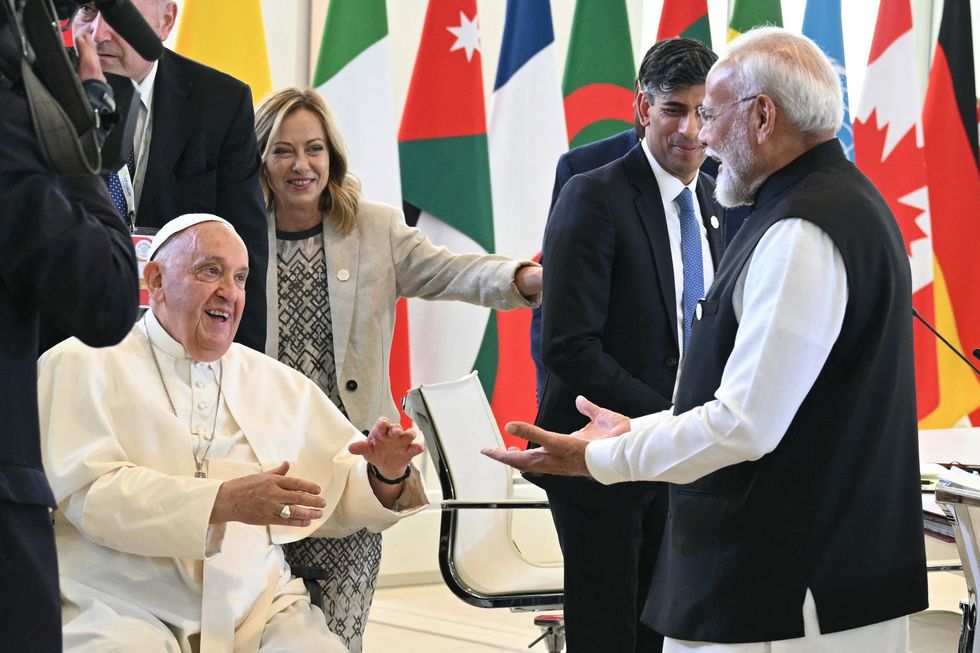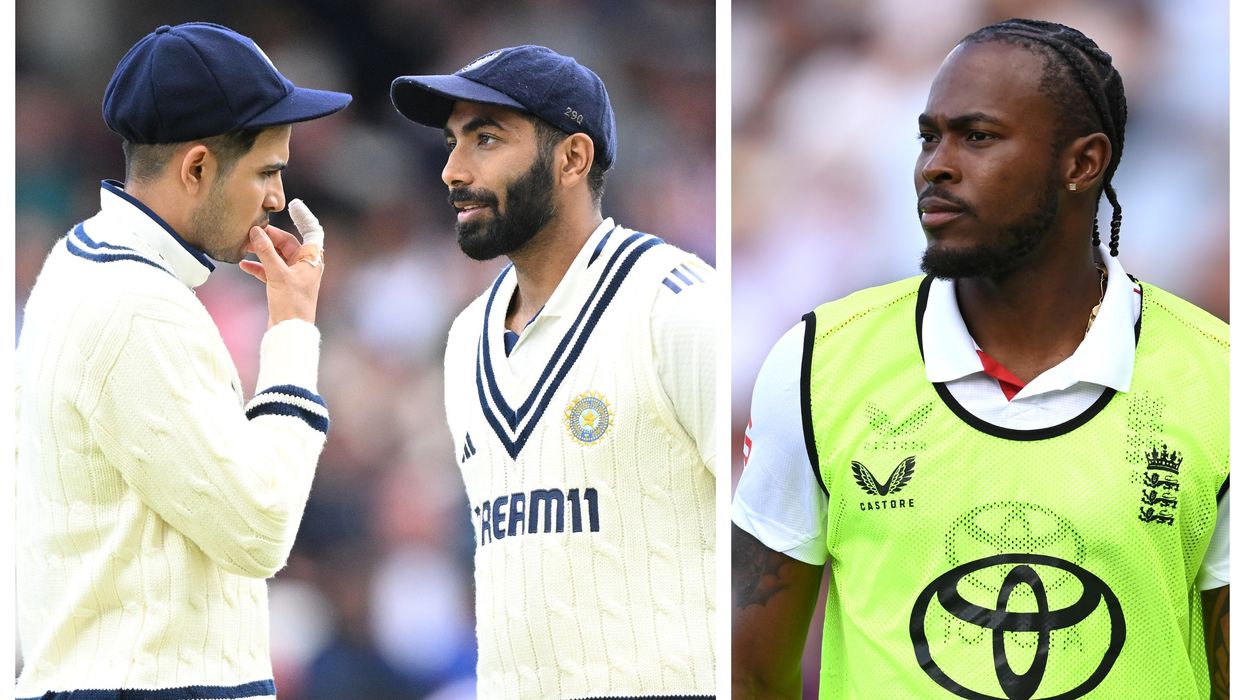INDIA began three days of state mourning on Tuesday (22) for the Pope, a rare honour for a foreign religious leader, as prime minister Narendra Modi joined other south Asian and world leaders in paying tributes following his death on Monday (21).
Pope Francis, the 88-year-old leader of 1.4 billion Catholics across the world, died of a stroke, causing a coma and “irreversible” heart failure, the Vatican said.
His death came a day after he appeared at St Peter’s Square on Easter Sunday (20).
Modi said the pontiff’s affection for the people of India will always be cherished.
The Indian leader, who met the Pope at the G7 summit in Italy last year, said he was deeply pained by his death and extended his condolences to the Catholic community.
“From a young age, he devoted himself towards realising the ideals of Lord Christ. He diligently served the poor and downtrodden. For those who were suffering, he ignited a spirit of hope,” the prime minister said.
Modi recalled his meetings with the pontiff, and said he was inspired by the Pope’s commitment to inclusive and all-round development.
“HIS affection for the people of India will always be cherished. May his soul find eternal peace in God’s embrace,” Modi said.
In a statement, India’s Ministry of Home Affairs said, “As a mark of respect, three-day state mourning shall be observed throughout India.”
Two days’ state mourning was observed on Tuesday and Wednesday (23). Further, a day’s state mourning will be marked on the day of the funeral, the statement added.
During this time, the national flag will be flown at half mast throughout India on all buildings and there will be no official entertainment, it said.
The late Pope’s connection with India was marked by a mix of hopes and challenges, although his long-held wish to visit the country remained unfulfilled.
Just months ago, the pontiff elevated an Indian priest, a Vatican official, to the rank of cardinal – a notable moment for the Catholic community in the country.
During his papacy, in 2014, Pope Francis had elevated Father Kuriakose Elias Chavara and Sister Euphrasia Eluvathingal from Kerala to sainthood.
In 2019, another Kerala-born Catholic nun, Mariam Thresia, was declared a saint by the Pope at St Peter’s Basilica in Rome. She was the third nun and fourth clergy member from the Kerala-based Syro-Malabar Church to be canonised into the league of saints.
His papacy also saw Devasahayam Pillai, who embraced Christianity in the 18th century, being declared a saint – thus becoming the first Indian layman to be canonised.

Pope Francis’s funeral, which is expected to draw huge crowds, will take place at 10am (0800 GMT) on Saturday (26) in the square in front of St Peter’s Basilica at the Vatican.
The pontiff had come close to dying twice earlier this year while suffering from pneumonia. He spent 38 days in hospital before he was released on March 23.
Tributes poured in from around the globe for the liberal reformer who took over following the resignation of German theologian Benedict XVI in 2013.
Bangladesh’s interim government paid its respects to Pope Francis, with Nobel Peace Prize laureate Muhammad Yunus praising the late pontiff as a “true friend and kindred spirit”.
Yunus, 84, shared a “profound connection” with the Pope, his office said in a statement. The micro-finance pioneer took over as interim leader of Bangladesh after a mass uprising ousted the government in August 2024.
“Pope Francis was a towering figure of moral clarity, humility, and compassion in our time,” the statement said, detailing how the men had worked together on shared efforts for social justice and care for the natural world.
“His lifelong dedication to justice, peace, and the dignity of every human being resonated far beyond the Catholic world,” it said.
“His leadership, rooted in the values of fraternity and service, inspired global efforts to uplift the poor, protect the vulnerable, and build a more humane and peaceful world.”
Sri Lanka’s president Anura Kumara Dissanayake said, “His unwavering commitment to peace compassion and humanity has left an indelible mark on the world. May his legacy of compassion, justice and interfaith harmony continue to inspire generations to come.”
The BAPS [Bochasanwasi Shri Akshar Purushottam Swaminarayan Sanstha] also offered condolences. The spiritual leader, His Holiness Pujya Mahant Swami Maharaj, said the pontiff would be remembered as a “beacon of hope, compassion and unity”.
“His commitment to the marginalised and his call for global solidarity resonated deeply with the values we hold dear in our own tradition. We commend his endeavours to build bridges between different faiths...,” HH Pujya Mahant Swami Maharaj said.
The Pope’s efforts to promote social justice, environmental stewardship, and peace-building have left an indelible mark, the BAPS guru said.
He added, “His departure is a profound loss to the Catholic community and Christians around the world. In this time of mourning, we stand in solidarity with you. We share in your sorrow and pray to God and all the divine energies that you find comfort in the legacy of simplicity and compassion that Pope Francis strove to promote. May his vision of a more just and harmonious world continue to inspire us all.”
In India, the Rashtriya Swayamsevak Sangh (RSS), the ideological parent organisation of the ruling Bharatiya Janata Party, on Tuesday mourned his death.
Sunil Ambekar, Akhil Bharatiya Prachar Pramukh (national publicity head) of the Nagpur-headquartered organisation, took to social media platform X to condole the passing of the pontiff.
In a post on RSS.org’s X account, he said, “We express our deep condolences over the sad demise of Pope Francis. He served as head of the Catholics for long years. Let’s pray to God to give proper place to the departed soul.”


















